
Ms Mufti has added a personal touch to politics in Kashmir. EPA Photo
New Delhi, 10 Rajab 1437/17 April 2016 (MINA) – In the northern Indian state of Jammu and Kashmir, where politics is dominated by men, its first woman chief minister Mehbooba Mufti, always seen in public with a dupatta or long scarf covering her head, is an easily recognisable political figure.
Ms Mufti, 56, leader of the Peoples Democratic Party (PDP), was sworn in as the state’s chief minister on April 4, after the death of the incumbent, her father Mufti Mohammed Sayeed, in January, following a severe lung infection.
Ms Mufti was very close to her father and went into mourning for nearly three months, Mi’raj Islamic News Agency (MINA) quoting straitstime.com as reporting..
Meantime, speculation mounted over whether she would continue the alliance with the Bharatiya Janata Party (BJP) – she did – an alliance that her father called a “meeting of the South and North Poles”.
Also Read: Egypt, Qatar Deliver Trump’s Gaza Ceasefire Proposal to Hamas
India’s ruling party BJP and PDP struck up an alliance in the divided state following the 2014 Assembly elections, in which the PDP won 28 seats in Muslim-majority Kashmir while the BJP won 25 seats in the Hindu-majority Jammu.
Mr Sayeed said then that he entered the alliance to unite the state, although most Kashmiris view the Hindu nationalist BJP with distrust.
Ms Mufti, who has two daughters, is known to be a shrewd politician with a reputation for having a finger on the pulse of the people. She was instrumental in building up the PDP as a regional Kashmiri party from its inception in 1999.
Now, her biggest challenge is to navigate a government in coalition with the BJP – a move that she was said to have initially opposed, but agreed to for her father’s sake.
Also Read: Israeli Airstrikes Kill 54 Palestinians Across Gaza
Indeed, her decision to continue the alliance with the BJP was said to have been fuelled by rebels within her party who were planning to break away if she did not do so.
Born on May 22, 1959, in Anantnag district to a well-off Kashmiri family, Ms Mufti graduated in English literature from Government College for Women in Jammu before earning a law degree from Kashmir University.
Politics has been an important part of her life since she was young. Her father forged a successful political career in Kashmir and became a household name by becoming the country’s first Muslim home minister in 1989 under the then National Front government. He was later chief minister of Jammu and Kashmir twice.
Ms Mufti, who fought her first election and won in 1996 on a Congress party ticket, built her political career during the separatist militancy years of the state in the 1990s. She has served as a member of the local legislative assembly and federal member of parliament.
Bringing personal touch
Also Read: School Bus Explosion in Pakistan Kills Five, Military Accuses India
Kashmir, at the heart of a territorial conflict between India and Pakistan, has been racked by separatist violence from the 1990s. Thousands of Kashmiris lost their lives in the violence between militants and federal authorities.
Over the years Ms Mufti has brought a personal touch to politics in Kashmir, travelling tirelessly, despite terrorist threats, through the remotest parts of the region, commiserating with the families of those killed in the violence. She wept with them and brought issues like human rights abuse to the political forefront. In the 2014 elections, she went door to door canvassing for support for her party.
Her father at a press briefing last November when asked about his daughter taking over as chief minister said “she deserves it”. He added: “She works in the field, while I only do speeches and sit in office.”
Her life has not been without personal difficulties. In 1989, her sister Rubaiya, then 23, was kidnapped by Kashmiri terror group Jammu Kashmir Liberation Front days after her father became home minister.
Also Read: Half a Million People in Gaza on the Risk of Starvation: IPC
She was released within days after the government agreed to release five terrorists in exchange.
Though Ms Mufti is seen to have broken the gender barrier in the state’s politics, the question now is if she can walk the fine line of balancing a coalition with the BJP with reaching out to the Kashmiris.
Her first test is to control the disturbances on the National Institute of Technology campus, where a small disagreement has led to clashes between Kashmiri and non-Kashmiri students.
“Mehbooba is very much respected among people of Kashmir, but they are watching how she delivers and performs and how she contains some of her colleagues in the BJP,” said author and journalist Ghulam Nabi Khayal. “She has to tread the road cautiously, otherwise this coalition won’t last for the full five years.” (T/R07/R01)
Also Read: Israeli Captive Says “Only a Deal Will Bring Us Home”
Mi’raj Islamic News Agency (MINA)






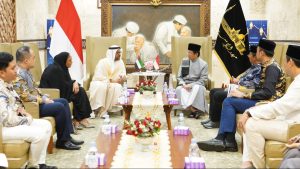

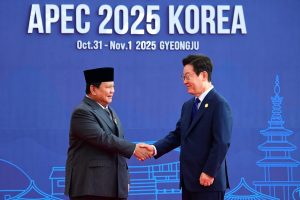
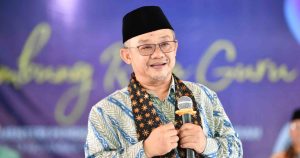

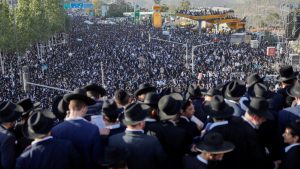
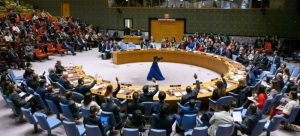

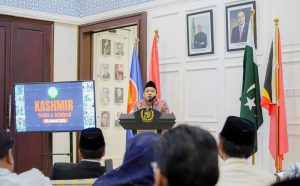
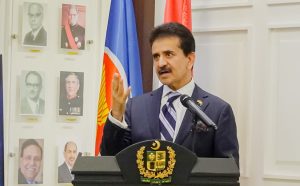
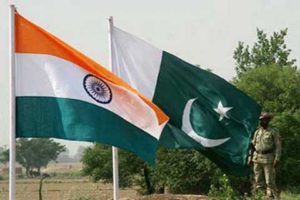
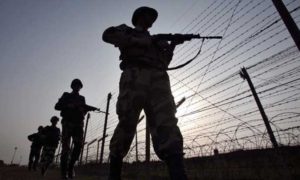
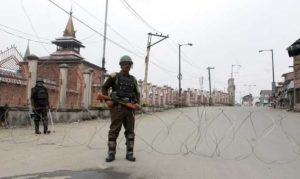







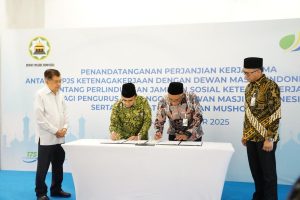
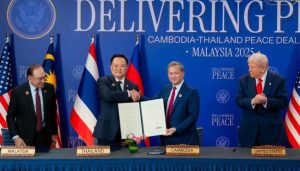
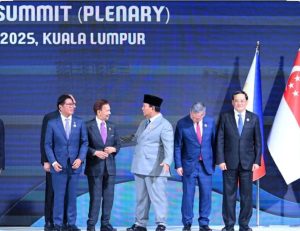
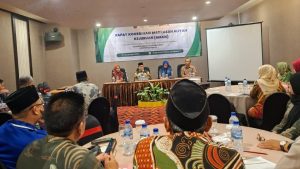
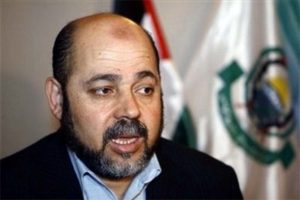




 Mina Indonesia
Mina Indonesia Mina Arabic
Mina Arabic